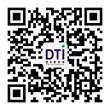How to apply for EU EN71 certification for early childhood education devices
Date:2025-07-29 10:08:06 Classification
:【question】 Visits:
Obtaining EU EN71 certification for early childhood educational devices is a critical step in ensuring compliance with European safety standards and smooth entry and sale into the EU market. Manufacturers must understand the standard's requirements, prepare the necessary documentation, select an appropriate certification body, complete testing, obtain a certificate, and ultimately affix the CE mark.
1. Understanding the Scope of EN71 Certification
EN71 certification applies to any product or material designed for play by children under the age of 14. Early childhood educational devices, as children's learning supplies, are typically intended for children under the age of 14. Therefore, they must comply with the EN71 toy safety standard to be sold in the EU.
2. Identify the EN71 sections that require testing
Although the EN71 standard has 11 sections, generally, only the first three sections are required:
- EN71-1: Physical and Mechanical Properties: This tests for sharp edges, small parts, tension, compression, and drops to ensure that the product will not cause physical harm to children under normal use and foreseeable abuse.
- EN71-2: Flame Retardancy: This tests the product's burning rate to ensure that the material is non-flammable and prevents fire risks.
- EN71-3: Migration of Certain Elements (Heavy Metals): Tests the content of migratable heavy metals (such as antimony, arsenic, barium, cadmium, chromium, lead, mercury, and tin) in product materials to ensure that they do not exceed the specified limits, thereby preventing children from ingesting harmful substances through chewing or contact.
3. Prepare Application Documents
The following documents are required for EN71 certification:
- Company information and product specifications or user manuals.
- Product parts list (BOM).
- Test samples (usually 2-3 required).
4. Select a certification body and submit your application
Select an EU-recognized, qualified certification body or testing laboratory for certification services (such as Dezewei Testing). The application process typically includes:
1. Fill out the application form: Obtain and complete the application form from the certification body.
2. Submit the application documents: Submit the prepared application documents to the certification body.
3. Send the test samples: Send the test samples to the designated laboratory.
5. Product Testing
The certification body or its partner laboratory will conduct the appropriate testing on the early childhood education device samples, including tests for EN71-1, EN71-2, and EN71-3.
6. Obtaining Test Reports and Certificates
- Test Report: After testing is completed, the laboratory will issue a detailed test report stating whether the product complies with the relevant EN71 standards.
- Certification: If the product passes the testing, the certification body will issue the EN71 certification certificate.
7. Affixing the CE Mark
After obtaining the EN71 certification certificate, you can affix the CE mark to your early childhood education device, indicating that the product complies with the essential requirements of relevant EU directives, including the Toy Safety Directive (as reflected in the EN71 standard).
8. Fees and Turnaround Time
- Fees: The cost of EN71 certification varies depending on the product type, the number of test items, and the certification body, but is generally around RMB 1,000. Please contact the certification body for specific fees.
- Turnaround Time: The processing time is generally fast, approximately 5-7 business days.




 Shen Gongwang Security: 44030602006947
Shen Gongwang Security: 44030602006947